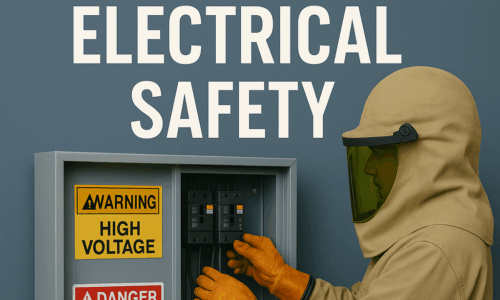Ask Lewis Bass: Do We Need a Third-Party Electrical Evaluation for Our New R&D Equipment in an Accelerator Lab?
From the Desk of Lewis Bass
Welcome back to “Ask Lewis Bass,” where we answer real questions from folks with tricky compliance puzzles. This week we have a submission from someone we’ll call Lab Lead Lucy, facing an unusual requirement about third-party evaluation of R&D equipment.
Question:
Hi Lewis Bass,
We’re building a custom accelerator in our university’s research facility. We’ve designed some novel R&D equipment which includes: power supplies, magnet coils, and custom load controllers. The facility management is insisting on a third-party electrical evaluation before we even install them.
My questions are as follows:
When is a third-party evaluation required (code, insurance, safety)?
What exactly does it entail?
What are the risks of not doing one up front?
– Lab Lead Lucy
Lewis Bass:
Hi Lab Lead Lucy,
Excellent set of questions. Third-party electrical evaluations can feel like overkill, especially for R&D equipment, but sometimes they’re essential. I’ll start by answering your questions 1-by-1 and then finish up with some great advice for you and your team to pass on to your facility management.
1. When is a Third-Party Evaluation Required?
If your R&D equipment connects to high-voltage or high-current systems, or if the facility’s insurance policy references external reviews or UL/NRTL/other third-party standards, you may contractually or legally need the evaluation.
If local or state electrical codes or the authority having jurisdiction (AHJ) require certified assemblies, or if you’re modifying utility supply equipment, a third-party review often becomes nonnegotiable.
2. What Does the Evaluation Include?
A third-party electrical evaluation typically covers:
Design review: drawings, wiring schematics, overcurrent protection, grounding/earthing, insulation coordination.
Hazard assessment: shock risk, arc flash potential, transient voltage surges.
Performance under fault or upset conditions: how the R&D equipment behaves under overload, short-circuit, or power disturbance.
Verification of compliance: with relevant safety standards (NEC, NFPA, UL, SEMI, etc.), and possibly performance or ride-through requirements.
Report and documentation: signed report, listing non-conformities, recommendations, and proof of remedial action.
3. Risks of Skipping It
Safety risks: without third-party review, latent hazards like improper bonding or insulation could lead to electric shock, fire, or arc flash.
Legal & insurance exposure: facility insurance may deny claims if injury or damage results from unverified equipment. Noncompliance could lead to citations or shutdowns.
Project delays & cost overruns: discovering issues later often costs far more than verifying in advance. Rework, redesign, or equipment replacement tend to be expensive.
Some advice for Lab Lead Lucy
In your case, since the facility is insisting, it’s wise to comply up front. Treat the third-party evaluation as part of the design schedule.
Choose an evaluator with experience in R&D equipment, since standard commercial machines differ a lot from experimental setups. They’ll understand atypical loads, unusual wiring, and more flexible tolerances.
Document everything: design choices, materials, safety margins. Even if you pass, the documentation will protect you later.
Budget time and cost: third-party evaluations take time, often several weeks, depending on complexity.
Lab Lead Lucy, I hope this clarifies why your facility is asking, what’s involved, and what you stand to lose by deferring a third-party electrical evaluation. With R&D equipment, because you’re often pushing boundaries, these third party electrical evaluations won’t just be useful paperwork to placate your management team, it’s also an investment in safety, reliability, and your ability to push forward without surprises.
Do you have a question for Lewis Bass?
If you have a question you would like to ask our engineering team about, and don’t mind it being featured in one of our upcoming blog posts, please contact us and reference “Ask Lewis Bass” in the message body.
Include any helpful context along with the question you’d like us to answer for you. All company contact information except for a first name, unless already anonymous on receipt, is anonymized for privacy reasons.


